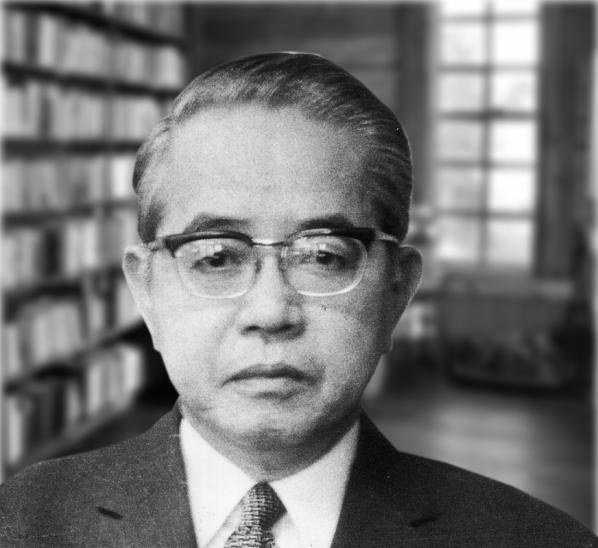How to benefit from science and industry without paying in pollution and destruction of nature is increasingly the conundrum of modern civilization. While much of Japan experiences this dilemma acutely, in Miyazaki Prefecture solutions are being found to enhance, rather than endanger, the quality of life with modernization.
HIROSHI KUROKIs intimate knowledge of Miyazaki began with his birth there in 1907. Trained in agriculture and law he served 24 years in the Miyazaki Prefectural Government and two years as secretary to the Minister of Agriculture and Forestry in Tokyo. He returned to Miyazaki to head a farmers cooperative federation. After a four-year term as Vice-Governor, this ex-civil servant, in 1959, was elected Governor as a political independent and next year will complete his fourth consecutive term.
In southernmost Kyushu Island, tucked between mountains and facing the powerful sweep of the Pacific Black Current, Miyazaki was isolated and its over one million inhabitants had the lowest per capita income of any prefecture in Japan. As governor, KUROKI creatively mobilized indigenous skills and resources and the talents of his prefectural administration, to dispel both this isolation and poverty.
For farmers ekeing a marginal living ”mainly on sweet potatoes and upland rice” systematic research found crops that could be grown profitably and safely on poor, typhoon-swept soil. Today the large-scale production of greenhouse vegetables and of citrus fruits is carried in fast, new ferries to Tokyo and other major markets. Beef and dairy cattle, introduced for special pasture zones, bring new income. Some 53,000 hectares of land are being irrigated, while 10,000 hectares annually are reforested. Fishing revenue is increasing 14 percent annually with modernized fishing ports and culture of marine products. Capitalizing upon a warm climate, scenic beauty and historic sites linked to a legendary past, better roads, airports and rail service now attract some 7.5 million tourists each year. The first prefecture to proclaim an environmental beautification and nature conservation act, Miyazakis new industrial park, reclaimed from the seashore, has built-in precautions against pollution.
While per capita income increased three-fold in 10 years, the problem persisted of young people migrating to distant big cities. Adapting to Miyazaki the system of agricultural education he had seen in Denmark, KUROKIs solution is the Study for Agricultural Prosperity Movement, giving rural youth economic hope, prestige as instruments of change and a sense of cultural attachment to the land. Centers for advanced farm management, and farm machinery and technical schools, were developed.
Moreover, so that all generations would find in Miyazaki attractive opportunity for living, the prefecture pioneered in medical insurance for the aged and infirm for whom centers were also built.
In electing Governor HIROSHI KUROKI to receive the 1974 Ramon Magsaysay Award for Government Service, the Board of Trustees recognizes his administrative originality in modernizing a backward prefecture in a manner congenial to the traditional minded yet attracting the young.
It is indeed the highest honor for me to be able to visit your great nation as a recipient of the 1974 Ramon Magsaysay Award and to have the occasion to meet everyone who has been involved with this Award.
This Presentation Ceremony marks my first visit to the Philippines, and I find it a source of great joy and satisfaction to be able to experience directly the fresh blend of Eastern and Western culture as well as the abundant native culture that exists here.
I do wish to express to your President and to all your countrymen my sincere sympathy and regret for the damage done by the heavy rains which fell shortly before my departure for the Philippines.
You have my earnest prayers for the quick recovery of all those injured or distressed by that most unfortunate natural disaster.
The late President Magsaysay was an outstanding leader for whom I have long felt great admiration. Attracted by his simple and humble personality, I have a deep respect for the late Presidents magnificent spirit and unselfish devotion. Man has the right to live in peace and happiness, this was his belief, and strongly in sympathy with the opinion that such should be the cornerstone of modern government, I have lent all my powers and abilities for service to the people and for the promotion of their welfare.
I was born in Miyazaki Prefecture and, except for several years during my school days, most of my life has been spent there in the region of my birth. I have always been concerned about the people of this area and its every tree and every blade of grass, protecting and nurturing the importance both of the outstanding natural characteristics of Miyazaki Prefecture and of the humanistic quality that develops in such natural surroundings. While promoting harmony between man and nature, I have involved myself in creative regional development.
To have received here today the Ramon Magsaysay Award because of my humble efforts is, for me, deeply stirring, and I can imagine no greater honor. The very fact that the Ramon Magsaysay Award Foundation should have turned its attention to our prefecture is both very surprising and highly gratifying to everyone in Miyazaki, and to myself most of all. I believe that this Award is being made, not merely to me as an individual, but to all residents of the prefecture in recognition of their wisdom and efforts. Therefore, I humbly accept this Award and the honor it represents on their behalf as well. Please accept in return my sincerest thanks.
Having received the honor and deep emotional stimulus from this Award, I shall continue my activities in regional development and promotion of welfare, working for the creation of a more livable, affluent, and worthwhile society.
In conclusion, let me express my deep gratitude to all those whose preparations and kindness have contributed to my presence here today at these Presentation Ceremonies.

